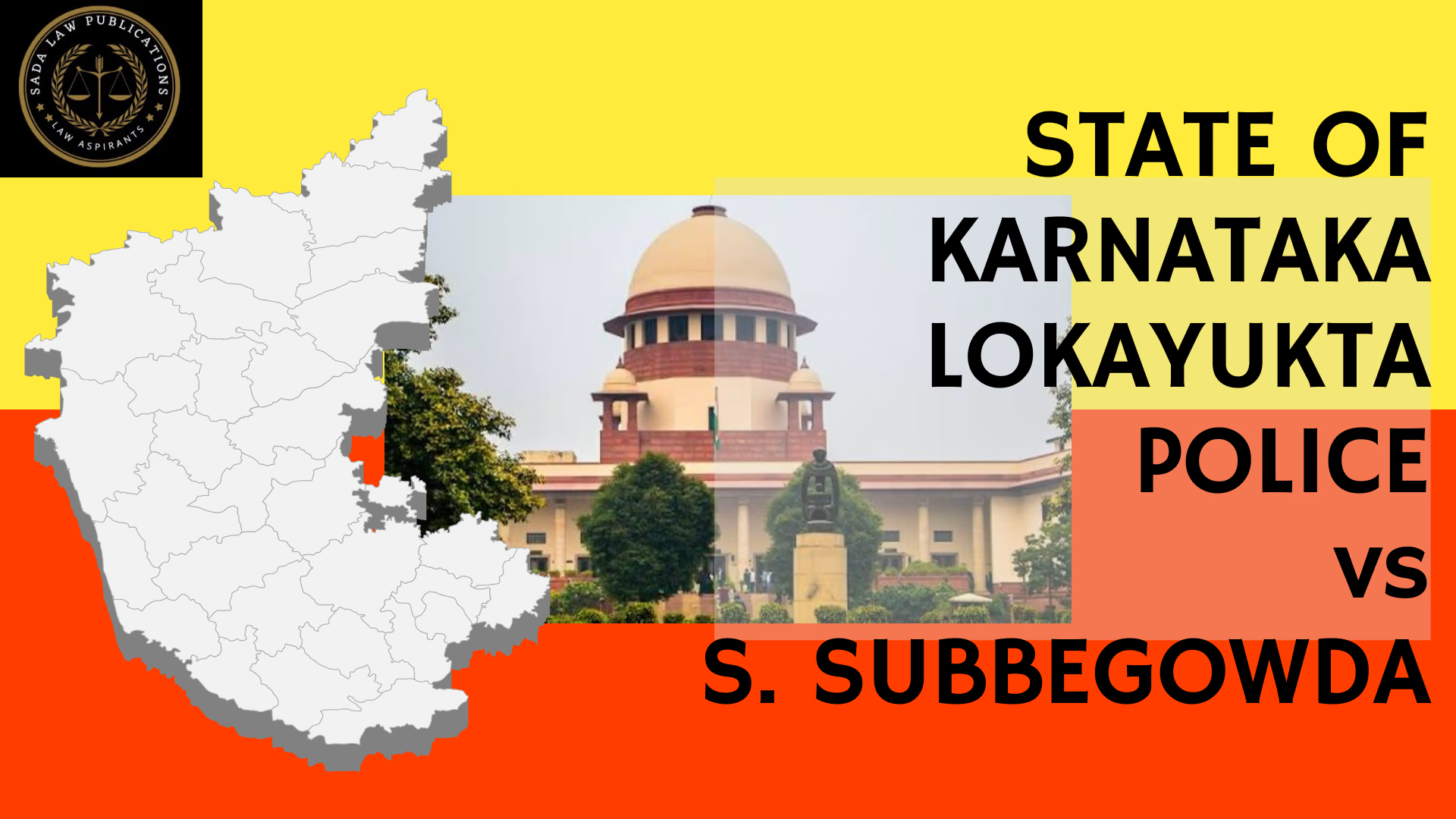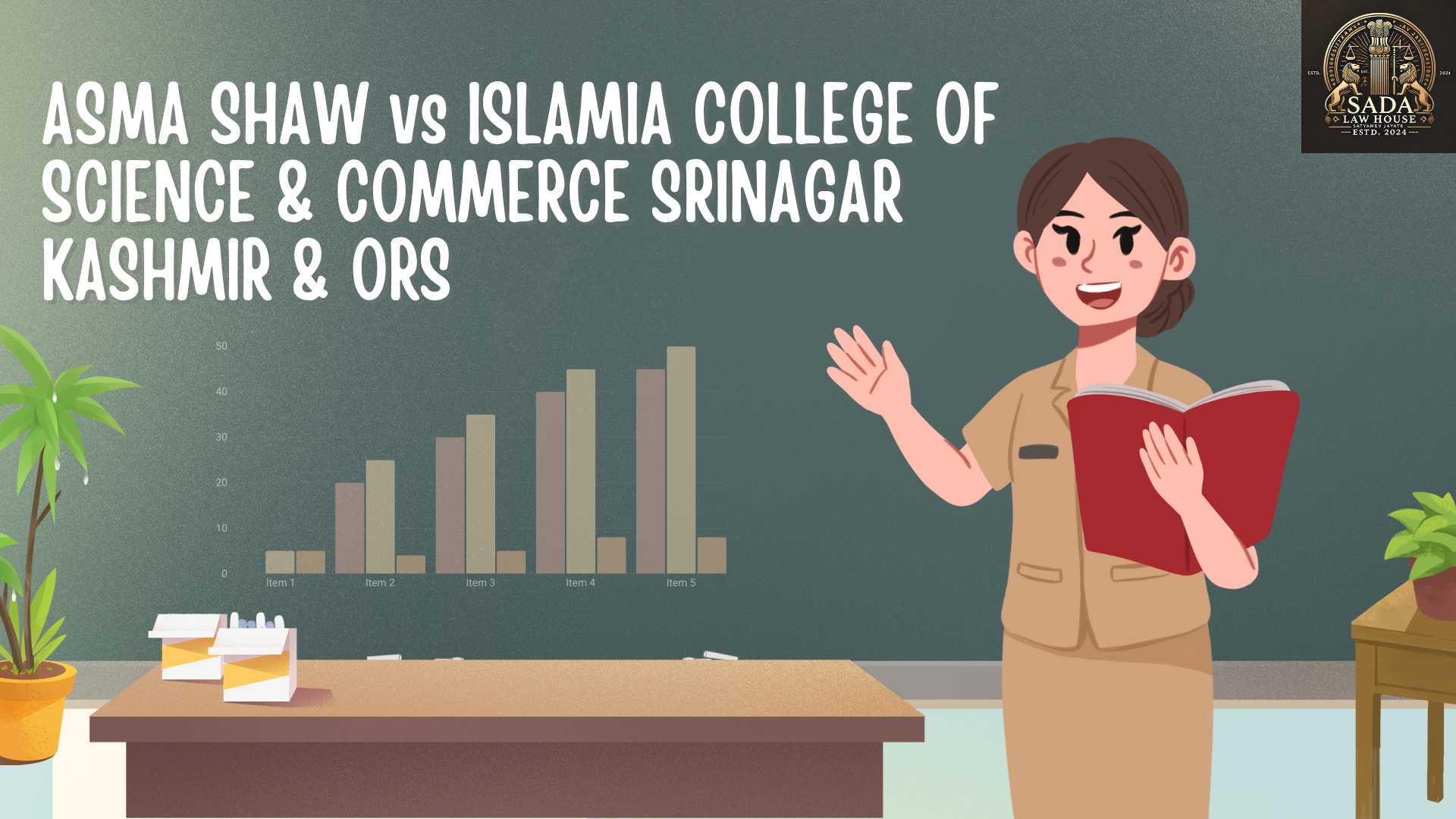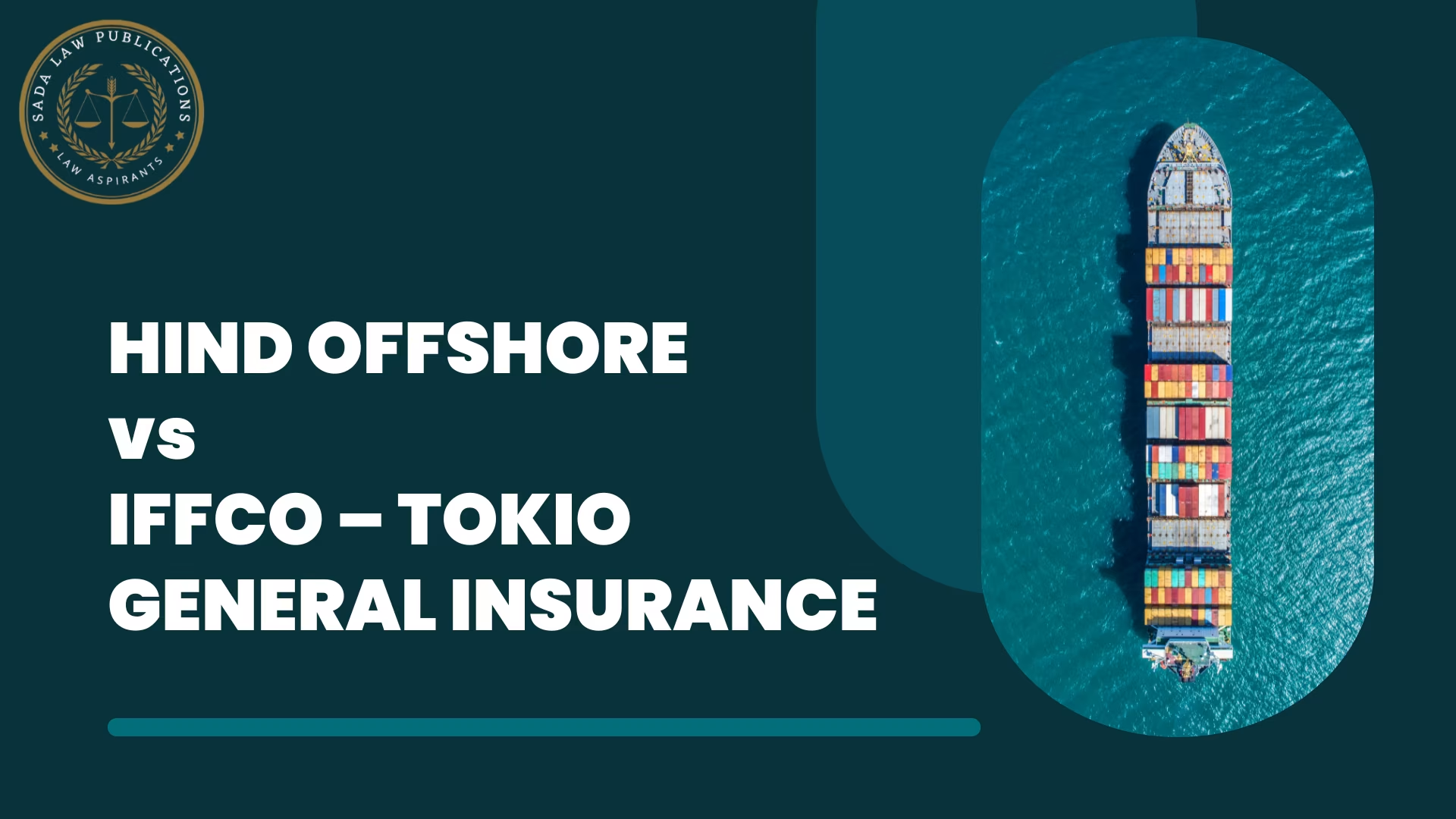State of Karnataka Lokayukta Police v. S. Subbegowda (2023)
- PRABHAT KUMAR BILTORIA
- 14 October, 2025

Introduction
The Supreme Court of India, in State of Karnataka Lokayukta Police v. S. Subbegowda, addressed the legality of prosecution sanctions under Section 19 of the Prevention of Corruption Act, 1988, and clarified the scope of judicial intervention under Section 482 CrPC. The case arose after the Karnataka High Court dismissed charges against S. Subbegowda, a public servant, claiming that the State Government’s sanction was invalid.
Facts of the Case
S. Subbegowda served as Executive Engineer in the Karnataka Urban Water Supply and Drainage Board from 1983–2007.
In 2007, a complaint was filed against him for assets disproportionate to known income, leading the State Government to authorize prosecution under Section 19(1) of the PC Act.
Subbegowda contested the sanction multiple times:
First discharge application was denied.
Second application was withdrawn.
Third application filed after 17 witnesses were examined claimed the State Government lacked authority to grant sanction.
The trial court denied the third application; however, the High Court dismissed him citing an invalid sanction under Section 482 CrPC.
Issues of the Case
Can the High Court, under Section 482 CrPC, dismiss the accused at a later stage of trial on grounds of alleged invalid sanction, especially if objections were not raised earlier?
Do Sections 19(3) and 19(4) of the PC Act restrict judicial interference in such matters?
Judgment
The Supreme Court allowed the appeal, holding:
Improper Use of 482 CrPC Powers:
The High Court erred in intervening mid-trial since the accused had previously waived his objection and allowed the trial to proceed.
Judicial powers under Section 482 CrPC cannot be invoked to avoid trial once evidence gathering has begun.
Bar under Section 19(3) of the PC Act:
Appellate or revisional courts cannot overturn Special Judge orders regarding sanction unless a failure of justice is shown.
The High Court did not demonstrate any breakdown of justice.
Precedent from Nanjappa v. State of Karnataka (2015) 14 SCC 186 reaffirmed that:
Sanction legality may be considered by the trial court.
Interlocutory applications after charges are framed are not permitted.
Doctrine of Waiver/Estoppel:
By withdrawing the second application, Subbegowda waived his right to challenge the sanction again during the trial.
Next Steps for the Accused:
The accused may raise sanction issues during closing arguments, ensuring procedural fairness is preserved.
Conclusion
The Supreme Court emphasized procedural discipline in criminal trials, particularly in corruption cases:
Repeated or late challenges to sanction orders are not permissible once a trial has commenced.
Section 482 CrPC should be used sparingly, only to prevent clear injustice.
Trial courts must continue proceedings without undue interference, maintaining both fairness and procedural compliance.





